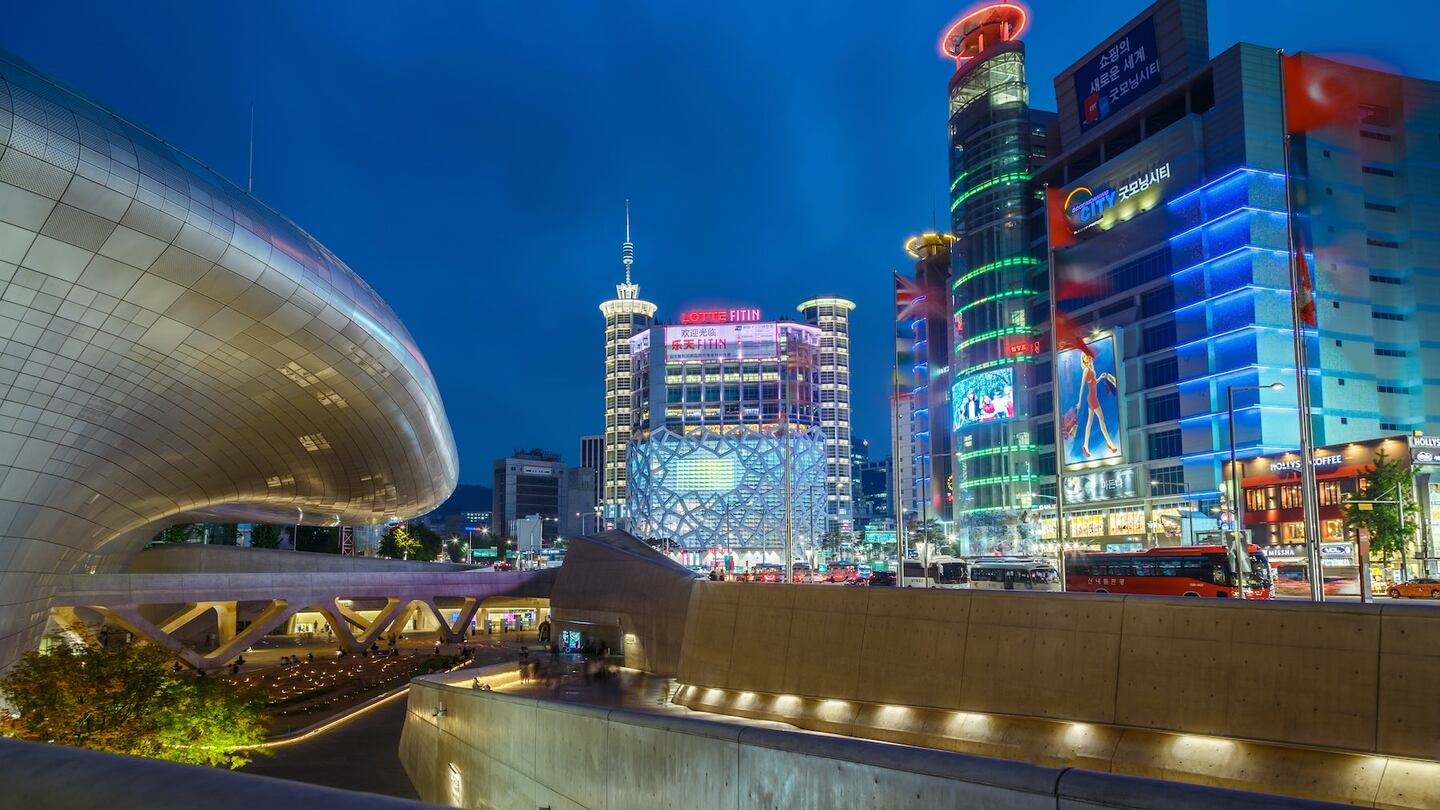
The Business of Fashion
Agenda-setting intelligence, analysis and advice for the global fashion community.

Agenda-setting intelligence, analysis and advice for the global fashion community.

LONDON, United Kingdom — South Korea's large domestic luxury market, steady influx of Chinese tourists and strong department store distribution model represents a unique opportunity for global luxury brands, according to new research by Exane BNP Paribas.
Interest in South Korea has grown substantially over the past decade, driven, in part, by the country's unique melding of fashion, music, entertainment and celebrity. Indeed, only last month luxury goods giant LVMH bought a minority stake in Clio Cosmetics in a deal valuing the South Korean cosmetics maker at $700 million. In 2014, the private equity arm of the French luxury conglomerate, L Capital, also invested around $80 million in YG Entertainment Inc, which manages Korean 'idol' musicians like Taeyang and G-Dragon.
South Korea is Asia’s fourth largest economy with a gross domestic product that almost matches that of Italy and a historically weak currency that has supported one of the highest trade account surpluses in the world, according to Exane BNP Paribas. Over the past 10 years, average disposable income in South Korea has increased at a compound annual growth rate of 6 percent, helping to make South Korea a key opportunity for luxury brands.
The country accounts for around 5 percent of the global market for personal luxury goods. Seventy-five percent of this spending is concentrated in its capital Seoul and has grown two times faster than the country’s GDP. Known locally as ‘Sudogwon,’ the Seoul Capital Area is the second biggest metropolitan area in the world. With over 25 million people packed into Seoul proper, Incheon and Gyeonggi-do, it represents about half the country’s total population.
ADVERTISEMENT
Local customers make up the bulk of South Korea’s luxury market, accounting for more than 80 percent of luxury goods sales in the country. And most sales are driven by department store chains like Lotte, Hyundai and Shinsegae, presenting a unique distribution model compared to other countries that rely on a wider retail mix, including mono-brand stores and e-commerce, which remains underdeveloped in South Korea, with e-commerce penetration at around 4 percent, below the global average of 7 percent. Indeed, digital presents a big opportunity for luxury brands targeting South Korea.
South Korea benefits from tourist spend, more than half of which comes from Chinese visitors, whose appetite for luxury goods is still helping to drive the overall market despite the country’s slowing economic growth.
Luxury goods companies like Burberry and Kering are best positioned to benefit from South Korea. Burberry has nearly 10 percent revenue exposure to South Korea, the highest of any luxury brand, according to Exane BNP Paribas. Kering is second, with almost 6 percent exposure.
Related Articles:
[ South Korea, Climbing the Ranks of Asia's 'A League'Opens in new window ]
[ What's Driving the Goldrush for Korean Beauty Brands?Opens in new window ]
[ Decoding Chanel’s South Korean SpectacleOpens in new window ]
The luxury goods maker is seeking pricing harmonisation across the globe, and adjusts prices in different markets to ensure that the company is”fair to all [its] clients everywhere,” CEO Leena Nair said.
Hermes saw Chinese buyers snap up its luxury products as the Kelly bag maker showed its resilience amid a broader slowdown in demand for the sector.
The group’s flagship Prada brand grew more slowly but remained resilient in the face of a sector-wide slowdown, with retail sales up 7 percent.
The guidance was issued as the French group released first-quarter sales that confirmed forecasts for a slowdown. Weak demand in China and poor performance at flagship Gucci are weighing on the group.